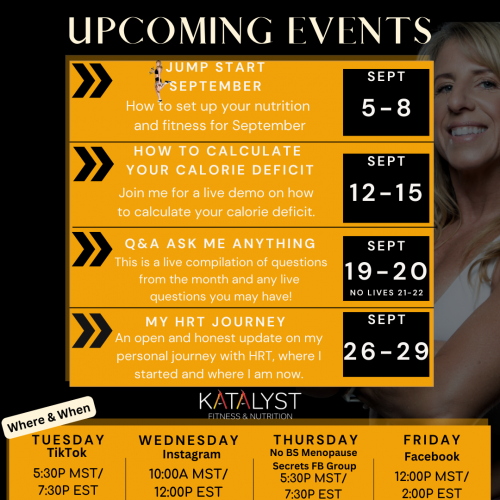You may be wondering, why are my calories so high? I’m not losing on what I’m eating now, how is eating more going to help me lose weight?
Most often clients aren’t truly eating as low as they think they are.
We’re usually just not good at tracking calories accurately.
I always use the example of a client I started coaching in 2019.
She couldn’t seem to lose any fat, despite tracking her food, and only eating 800 calories per day.
We immediately increased her calories drastically, and she lost 15 lbs in the span of a few months.
Now, was it the actual calorie increase that caused her to lose?
Nope.
This client also happened to have a job where she worked around food all day, and was forgetting to track the little bites and nibbles she took – which turned out to be well over 500 calories per day.
Plus, a higher calorie plan was easier for her to stick to – she got more consistent. (Another reason why a more moderate approach to dieting generally works better.)
This is the crux of why so many people that “Can’t lose on ____ low calories” suddenly seem to be able to lose on when eating more food.
Eating super low calories tends to drive people towards “falling off” for 1-2 days per week (and effectively negating any calorie deficit they’d created with the low calorie days). These individuals always feel like they’re dieting hard, but never actually see any progress.
Most will find a more flexible dieting approach is easier to be consistent with, yielding quicker fat loss after just a few weeks.
With most clients, we’ll discover large gaps in their tracking (often not tracking at all or largely guesstimating the weekends).
They just weren’t tracking everything they were eating, now they’re losing weight eating much higher calories (but really they’re eating less than before, just tracking accurately.
Or, you truly are eating very low calories, possible eliminating entire food groups (or carbs) and now you’ve downregulated your metabolism.
We think we need to exercise more and eat less. In fact, this used to work for us in our twenties and thirties so we have evidence that that works, but, as you’re going through menopause or you’re in your forties and fifties that approach stops working and that’s because your metabolism is changing.
By chronically dieting or undereating, you’ve essentially downshifted your metabolism and now you’re maintaining your weight on lower calories. The only way that you can lose weight from here is to drop calories even lower which I absolutely do not recommend! What we need to do is bring calories back up to maintenance calorie levels and stay there for 8 to 12 weeks. Now we can go into a fat loss phase as your body is primed for fat loss.
How To Tell If The Reverse Diet Is Working
Gauge how your body responds to the initial jump in calories.
I’m watching clients body weight changes, measurements change and biofeedback closely.
Here’s what we’re looking at:
→ Body weight: The first week of the reverse diet, most women will gain about 2-4 lbs of weight. After the first week to 10 days, weight should level out and drop slightly.
You’re taking in more carbs, and eating more total food.
Glycogen stores are being refilled – basically, your muscles are going to take in more carbohydrates, which are also going to soak up more water. This will help training performance & recovery.
Plus, you literally just have more food weight (gut content) in your belly.
The thing to realize is, this isn’t fat gain. It’s glycogen, water, and gut content.
It’s also normal week to week to see +/- .25″-.5″ measurement increase or decrease, but they’ll bring themselves back to baseline over the next 1-2 weeks.
→ Biofeedback: We want to see hunger and cravings decreasing, motivation, energy levels, training performance, sleep, and recovery improving. Libido goes up, your skin, hair and nails start to improve and your mood changes for the better.
→ Mindset: The process of reverse dieting can be frustrating if you’re only looking at your weight going up. Pay attention to all the positive effects of more calories! (this is a big part of why being coached through this process yields such good results).
This is how we get you to the point where you can maintain you current body composition at a higher calorie intake in the future, but you have to absolutely attack this process. From here we can go into a fat loss phase and your body will respond!
Clients often say they can’t eat this much or they feel stuffed. I get it, that is a totally normal reaction and is both mental and physical. It’s important to trust in the process, increase your calories so we can get your metabolism and hormones in an optimal place to release that fat.
If you put the brakes on the process by consistently undershooting your calorie goals it’s only going to make it longer.
Kathy Coté


